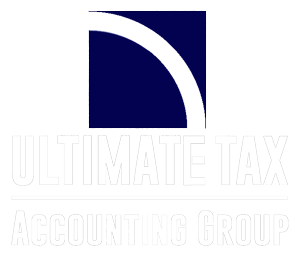Presidential Election Campaign Contribution
Do you usually mark either the 'Yes' or 'No' check box
on your tax return that asks you if you would like to
contribute $3 to the Presidential Election Campaign? If you
do choose to contribute, it will not change the tax you pay
or the refund you will receive. This fund was set up to help
pay the expenses of presidential election campaigns.
Basis of Property - Gains and Losses
When you purchase property, the basis is usually its cost.
Your cost also includes amounts you pay for sales tax paid
on the purchase, commissions, and freight charges. Keep
accurate records of all items that affect the basis of the
property. This will help you to determine if you have a gain
or loss when the item is sold.
Home Office - Deductions
Home office
deductions cannot be more than your earned income. If they
are higher, you must carry over the nondeductible expenses
to the following year. Form 8829, Expenses for Business Use
of Your Home, is used to deduct home office expenses for a
self-employed person.
Home Office - Qualifications
A home
office will qualify as the principal place of business if
you use it exclusively and regularly to conduct
administrative or management activities of your trade or
business, and if there is no other fixed location of the
business where you can conduct these activities.
Legal Fees for Unlawful Discrimination Claims
You may be entitled to an adjustment to income
for any attorney fees and court costs for actions settled
after October 22, 2004, involving a claim of unlawful
discrimination, a claim against the U.S. government, or a
claim made under section 1862(b)(3)(A) of the Social
Security Act (Medicare fraud claim) that you paid. The
deduction is limited to the amount of income you received
for the claim. You do not have to itemize deductions to
claim these expenses.
Mortgage Insurance Premium Deduction
Mortgage insurance premiums will be allowed as deductible
interest on Schedule A for tax year 2012. Premiums for
mortgage insurance policies started after December 31, 2011,
and before January 1, 2013, for less than $1 million of
acquisition indebtedness are deductible on Schedule A as
mortgage interest. This deduction begins to phase-out for
taxpayers with adjusted gross income exceeding $100,000.
This deduction is available for one year only.
Past Tax Returns - Getting Copies
If
you are buying a home, your mortgage banker may ask for
copies of several prior years' tax returns. If you cannot
locate them, please contact your local Ultimate Tax &
Accounting Group office near you. Otherwise, you can file
Form 4506, Request for Copy of Tax Return, with the Internal
Revenue Service. For a fee, the IRS will mail you copies of
your past returns. This can take up to 60 calendar days.
Real Estate - Home Purchases
Your home
purchase can be a wonderful tax advantage. You may be able
to benefit from itemizing your deductions. If so, you can
deduct payments such as mortgage interest, real estate
taxes, and most points paid by you or the seller in the year
of purchase. The earlier in the year you purchase your home,
the more months of mortgage interest you will have by tax
time.
Real Estate - Closing Papers
Once you
close on your new home, keep your closing papers, including
the Form HUD-1, in a safe place. When it is time for tax
preparation, the Form HUD-1 is the document you will need to
determine the points and other closing costs you can deduct
on your tax return.
Real Estate - Selling Your Home
If you
are getting ready to sell your home, it is time to calculate
the basis of your property for tax purposes. If you have
saved your Form HUD-1 from closing, you can add the
attorney's fees, surveys, agent's commissions, title
searches, recording fees, and the transfer and stamp taxes
to the basis. You may also add improvements you have made to
the property.
Real Estate Refinancing - Loan Points
When interest rates drop, many people rush to refinance
their home mortgages. Homeowners often assume that they may
also deduct their points. If you use the proceeds of your
new loan to make home improvements, you generally may deduct
the loan points in the year you refinance. If only a portion
of the loan is used to improve the home, only that portion
of points is deductible in the year paid. The remainder must
be deducted over the life of the loan.
Real Estate Refinancing - Home Improvements
Are you thinking about refinancing your home mortgage?
The portion of points paid to refinance a loan not used to
substantially improve your main residence is generally
deductible in equal amounts over the life of the loan. Any
points not deducted by the year the loan is paid off are
generally fully deducted in the payoff year.
Real Estate - Repairs & Improvements
The terms repairs and improvements can be confusing as they
apply to the value of your home. A repair or maintenance
expense is not tax deductible and cannot be added to the
basis of your home. An improvement adds to the value of your
home and is added to the basis. Adding vinyl siding and
installing a security system are examples of improvements.
Rental Property - Miscellaneous Deductions
If you are an owner of rental property, you can take
deductions for advertising for tenants, the costs of signs,
cleaning supplies, real estate taxes and mortgage interest.
Some of the other deductions include landscaping, fees paid
to property managers, and the cost of transportation to and
from the rental property.
Rental Property - Income & Expenses
If
you are a landlord, you will have income and expenses.
Rental income includes payments made by an occupant for the
use of property, payments to cancel a lease, advance rent,
and any security deposit used as a final payment of rent.
Some of your expenses, such as rent lost due to a vacancy,
are not deductible. Improvements made to the property must
be depreciated over a prescribed number of years and cannot
be deducted all at once.
Sale of a Home - General
You can avoid
paying taxes on the first $200,000 of profits on the sale of
a home if you are single, or the first $550,000 if you are
married. Generally, you must own and live in the home two of
the last five years. If you did not own and live in the home
two of the last five years, you still may be able to use a
prorated exclusion amount in certain situations (for
example, if you move because of your job).
Sale of a Home - Like-Kind Exchange
If
you acquired your home in a like-kind exchange, you can
avoid paying taxes on the first $200,000 of profits on the
sale of a home if you are single, or $550,000 if you are
married. Generally, you must own and live in the home two of
the last five years. If you sold your home after October 22,
2013, however, you must have lived in the home two of the
last five years and owned the home for the last five years.
Installment Agreement
If you owe but
cannot pay your full tax liability by April 15, 2014,
consider the IRS installment plan. To do this, complete Form
9465, Installment Agreement Request, and attach it to the
front of your tax return. If the IRS approves the request,
you will be charged a fee and interest on any unpaid
balance. You should make the payments large enough so that
the balance due will be paid off by the due date of your
next return.
Installment Agreement - Online Agreement
Many individuals who owe delinquent federal income taxes
can now apply online for a payment agreement. Paying taxes
on time and in full avoids unnecessary penalties and
interest. However, if you cannot pay in full you may request
a payment agreement. This new Web-based application allows
you or your authorized representative, such as Ultimate Tax &
Accounting Group, Inc., to self-qualify, apply for, and
receive immediate notification of approval. You must have
filed all required tax returns in order to use the online
application. You should also have the following information
available:
-
Balance due notice from the IRS
-
Social Security number from the IRS
-
Personal Identification number, which can be established
online using the caller identification number from the
balance due notice.
Three payment options are available: pay in full within 10
days, pay within 120 days, or set up a monthly payment plan
(fee applies).
Recordkeeping
It is a good idea to keep
your previous tax returns, as well as other important
documents that have affected your income and deductions for
at least three years. If you need a copy of a prior year
return, contact your local Ultimate Tax & Accounting Group, Inc office to
request a copy if that return was prepared by us. Otherwise,
you can obtain a copy from the IRS for a fee by filing Form
4506, Request for Copy of Tax Return.
|



